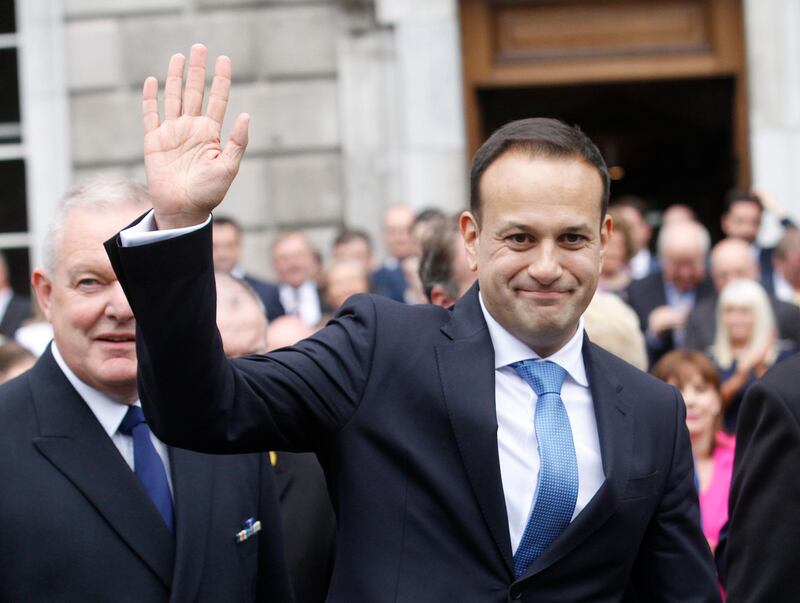As companies prepare to shift thousands of employees out of London in the run-up to Brexit, Dublin is among the European capitals jockeying for their attention. But it has to solve a dilemma: where will all these employees live?
Despite several advantages, Dublin is beset by a housing shortage, which is likely to become more problematic if companies pick the city as their new home. The shortage is an indicator of larger constraints of infrastructure that Dublin will face in the race to replace London.
Although the details of Brexit have yet to be negotiated, many companies — particularly in the financial sector — have begun to make plans to exit London.
After Brexit, firms based in the UK will not have smooth access to the European Union’s large pool of talent, its single market and customs union. In a survey of 600 European firms in London conducted by the Swiss bank UBS in March, 10 per cent said that they would leave London altogether, and 41 per cent said they would “reduce their UK capacity strongly”.
Dublin is one of several cities wooing these companies. Frankfurt, home to the European Central Bank and the European Insurance Authority, is a contender; so is Paris, a three-hour train ride from London. Berlin is already home to a deep pool of tech talent. Amsterdam, Lisbon and Madrid are also in the fray.
Dublin’s strongest card lies in how strongly it resembles the city it is attempting to replace, said Ronan Lyons, an economist at Trinity College.
“Dublin’s main advantages relate to its similarity to London: it is close, geographically and culturally, well-connected by air, and English-speaking with a similar legal system,” Dr Lyons said.
The two cities share a time zone and are separated by only a 50-minute hop across the Irish Sea by air.
______________________________________________
Read more:
[ Britain seeks Brexit without borders for Northern Ireland ]
[ The little German city with big financial clout ]
[ City of Light takes on City of London as Brexit looms ]
________________________________________________
Ireland also has a track record of working well with big companies, particularly in technology. Facebook, Yahoo! and Google have bases in Dublin; Apple’s European headquarters is in the city of Cork, southern Ireland.
Like other cities, Dublin will try for a slice of Britain's financial services sector. In 2016, financial and insurance services contributed £124.2 billion (Dh587bn) to the British economy, according to a parliamentary briefing paper. The sector employs more than one million people.
Dublin already has “a well-established financial services industry with most of the world’s top players operating there,” said Jim Power, an economist formerly with the Bank of Ireland who now runs a consultancy. “The city offers a young, highly educated labour force, and it is now a multi-cultural and cosmopolitan city with a strong quality of life.”
Some companies have already announced intentions to move here. Bank of America said last month that Dublin will be its future Europe hub. Although Citigroup has picked Frankfurt as its hub, it also plans to add to its workforce of 2,500 employees in Dublin.
JP Morgan, another banking giant, will also move “hundreds” of staff from London to Dublin, it declared in May. The company has purchased a new office block which will house up to 1,000 people.
The Irish government is in the midst of a hectic construction spree to provide office space to companies that choose to relocate here. “But access to an adequate supply of high-quality, affordable residential housing for rental or owner-occupier purposes is a challenge,” Dr Power said.
Construction of new housing slowed dramatically after 2008, when a recession crippled Ireland’s economy. As the economy gradually recovered, the supply of housing still lagged, driving up the prices and rents of the homes that did make it on to the market.
The government has also failed to build sufficient public housing, resulting in families being priced out of the market and rendered homeless. The shortage in housing is expected to drive up land prices in the city by 15 per cent this year, according to the Society of Chartered Surveyors Ireland.
Last year, 3,400 new homes were built in Dublin, according to government figures. But the city needs 10,000 new houses every year to meet demand.
John McCartney, the director of research at the real estate firm Savills, predicted that if Brexit results in companies moving to Dublin, “incoming workers in well-paid jobs could crowd out existing occupiers of properties … who can no longer afford them.”
“As a direct response to higher real-estate value and rents, we will get development which will increase the supply,” Mr McCartney said. Building large numbers of new houses will take time, he added, “but there are signs already that construction activity is rising sharply, albeit from a low base.”
Mr McCartney also noted that Ireland under-invested in infrastructure such as public transport during its recession. But the country is ramping up spending now.
“The minister for finance has just announced that he will no longer adhere to his predecessor’s goal of bringing the national debt down to 45 per cent of GDP,” he said. “Instead he will target a reduction to 55 per cent, using the additional funding specifically for investment in infrastructure.”






